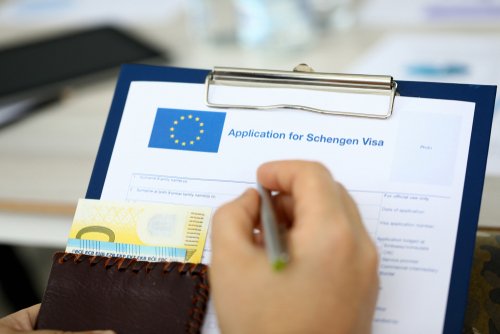Belgium (Brussels Morning Newspaper) Slovenia is threatening to veto Croatian accession to Schengen over a decades-long border dispute, despite Zagreb passing all regulatory hurdles required for joining.
Croatian Večernji list daily reported on Friday that Slovenia’s new Foreign Minister Tanja Fajon is in favour of Croatia entering the Schengen Area “as soon as possible”, but only if it first implements the 2017 Arbitration Tribunal ruling on the border dispute between the two countries.
The border dispute between the two countries dates back to both declaring independence from Yugoslavia in 1991. As some parts of the border were not determined in detail prior to independence, both countries disagree on where the land and maritime borders should run.
The first most detailed attempt to resolve the dispute happened in 2001, when centre-left prime ministers Ivica Račan and Janez Drnovšek signed an agreement that would amicably resolve the border issue. The agreement was ratified in the Slovenian parliament, but some of Račan’s coalition partners in Croatia saw the agreement as gifting most of disputed land to Slovenia, and the proposal never made it to ratification.
With Slovenian accession to the EU, Ljubljana started insisting that the border issue must be resolved prior to Croatian accession, in effect tying Zagreb’s membership in the EU with a resolution to the border dispute that Ljubljana would see as favourable. Under EU pressure, the two sides were encouraged to agree on binding international arbitration, which was to take place after Croatian accession.
The arbitration process faced a serious scandal in 2015, when Večernji list published transcripts and audio recordings of contacts between Jernej Sekolec, the Slovenian judge on the arbitration panel, and a Slovenian government representative, showing that the Slovenian government was feeding files to the court past due date, and that Sekolec was pressuring arbitration panel members from France, Germany and the UK to rule in Slovenia’s favour.
Even though Sekolec resigned as a member of the arbitration panel, Croatia withdrew from the arbitration process, citing provisions of the Vienna Convention regarding significant breaches of arbitration rules. Tribunal president appointed two new international judges to replace the Slovenian and Croatian representatives, and the arbitration continued.
The final ruling awarded Croatia most of its land border claims, while awarding Slovenia 3/4 of the disputed Bay of Piran and a “junction” – the right for all ships to pass freely through a corridor situated in Croatian territorial waters, in effect granting Slovenia access to international waters.
Some analysts believe that the deal actually favoured Croatia, leaving the country with all maritime exploitation rights within the “junction”, granting Croatia the Slovenian military complex on the St. Gera peak of the Žumberak mountain, and keeping all disputed villages in Istria on the Croatian side.
However, as Croatian right-wing voters would see the loss of the Bay of Piran as a defeat, no Croatian government could deal with the political fallout of accepting the arbitration ruling, and Zagreb maintains that Croatia has ceased to be a party in the agreement in 2015.
Conversely, despite Slovenia gaining very little through the ruling, its perception among Slovenian public is exceedingly positive, and abandoning the ruling would spell popularity problems for any Slovenian government.
Slovenian centre-right government of populist Prime Minister Janez Janša appeared to be backing Croatian Schengen accession without setting any extra conditions, with the European Council adopting the conclusions on the fulfilment of necessary conditions for the full application on 9 December last year, during Slovenian presidency of the EU.
However, as Freedom Movement (GS) president Robert Golob defeated Janša last month, his party not yet part of a European group, Slovenia’s approach to Croatian accession to Schengen appears to have shifted.
For Croatia, the main benefit of Schengen accession would be tourists having easier access to its coastal resorts – the border with Slovenia often becoming crowded with long lines of vehicles as EU tourists are leaving the Schengen area. Croatian accession to Schengen would also, in effect, make all remaining disputes between Slovenia and Croatia mostly irrelevant.




